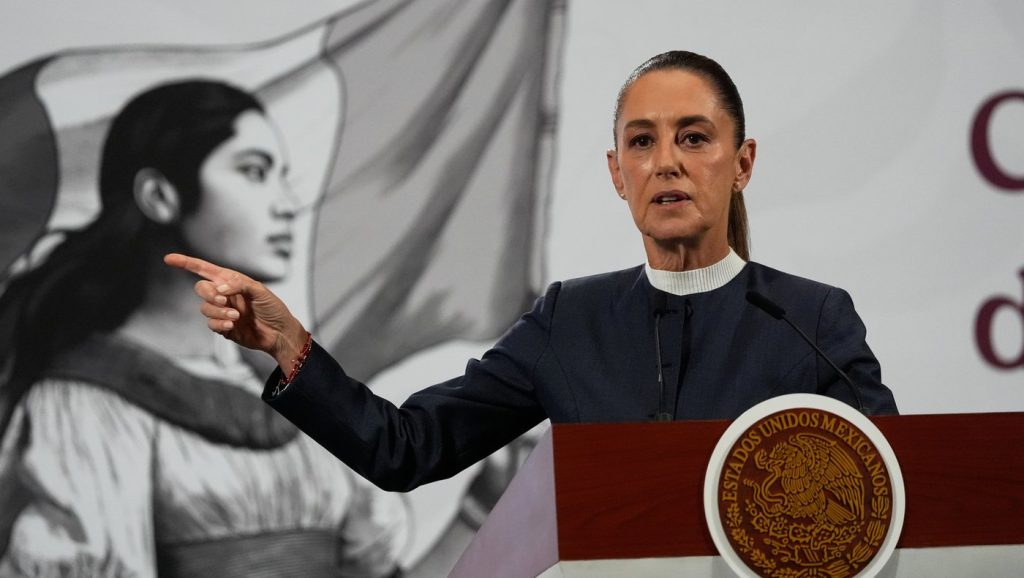MEXICO CITY – A five-minute walk from Mexico's National Palace to the Education Ministry turned into a national symbol of the harassment Mexican women face daily when President Claudia Sheinbaum was groped by a drunk man. This incident prompted Sheinbaum to take immediate action, announcing at her daily press briefing that she filed charges against the assailant.
During the briefing, Sheinbaum urged state governments to reevaluate their laws and procedures to make it easier for women to report assaults. She made it clear that women's personal space should not be violated, stating, "If this is done to the president, what is going to happen to all of the young women in our country?" Her statement underscores the severity of gender violence in Mexico, where even the highest-ranking woman is not immune to harassment.
The incident serves as a reflection of the widespread problem of street harassment. Andrea González Martínez, a 27-year-old employee at Nacional Monte de Piedad, shared her experiences of being harassed on public transport, often resulting in aggressive encounters, including being followed home. Her colleague, Carmen Maldonado Castillo, 43, echoed this sentiment, indicating that the inability to walk freely on the streets is a common issue for women in Mexico.
Sheinbaum revealed that she herself faced harassment at a young age while commuting to school, which has helped her understand the pervasive nature of this problem. "I decided to press charges because this is something that I experienced as a woman, but that we as women experience in our country," she stated.
The fallout from the incident raised concerns about Sheinbaum's security. However, she dismissed any suggestions to enhance her security protocols or alter her interactions with the public, as she and her team had opted for a more direct route to avoid long delays in city traffic. Following the event, Clara Brugada, the Mayor of Mexico City, announced that the man involved had been arrested, reinforcing the message that harassment against any woman, especially one in a position of power, is an attack on all women.
Brugada summarized the sentiment expressed during Sheinbaum's election, emphasizing that the fight against misogyny and violence is a collective effort. "It's not just about her coming to power; it is about all women," she said, highlighting a commitment to eradicate the normalization of such behaviors.
Some women, like Lilian Valvuena, felt the incident might lead to more robust measures addressing violence against women. She expressed hope that better training for police will follow, saying, "They don’t know what protocols to follow." Marina Reyna, executive director of the Guerrero Association against Violence toward Women, initially feared that by remaining composed while interacting with her assailant, Sheinbaum might minimize the incident. However, she expressed optimism that the president's discussions about this encounter could lead to improvements in the handling of similar cases, especially after years of activism on the issue.
A recent report from the World Health Organization highlighted that one in three women in the Americas has faced physical or sexual violence in their lifetime. In the first seven months of 2024, the number of femicides in Mexico had dropped by nearly 40%, yet the country still grapples with an estimated 70% impunity for violence against women, which deters many from reporting crimes. Internationally, only 20% to 30% of women experiencing violence in several Latin American countries seek state services designed for their protection, according to a report from the Economic Commission for Latin America and the Caribbean (ECLAC).
Political scientist Manuel Pérez Aguirre asserted that the assault on Sheinbaum should result in a strong legal response that serves as a clear deterrent to potential aggressors in Mexico. The broader societal implications of this incident highlight the urgent need for comprehensive reforms to protect women from violence and harassment in all forms.












